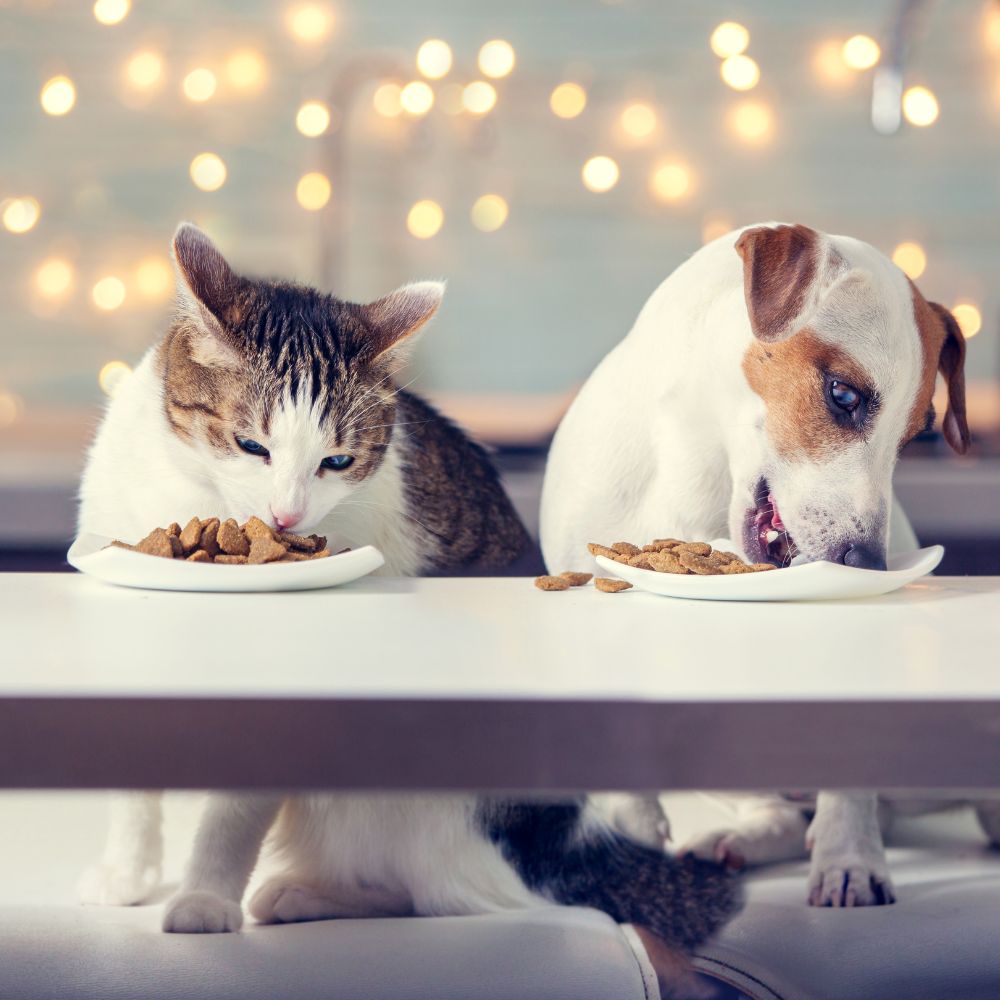
Nutrition
Gastrointestinal health is linked with the health of every other organ in the body, including the brain. When feeding your pet, always strive to optimize the diet. An adequate diet is just adequate, but exceptional nutrition can bring extraordinary results.
We recommend feeding premium dog food such as Royal Canin, Hills, Pedigree Advance, Prime 100 and Eukanuba /Iams. The Royal Canin Vetcare range is our top-of-the-range product. Research and development is continuously being done on these foods and the diets are periodically changed to incorporate these innovations.
To ensure dental health, dry food should make up the majority of the diet.
Feeding for the “life stage” is a way to make sure that your pet receives the optimal nutrients for growth, maintenance, and prevention of weight gain and aging.
Puppies:
Puppies should be fed a growth formulation and large breed puppies (adult body weight >25kg) should be fed a large breed growth diet. Large and giant breeds are particularly prone to disorders such as hip and elbow dysplasia. Often a genetic predisposition is present but the expression of these genes can be manipulated through diet — this is called nutrigenomics. Preventing obesity during the rapid growth period (12-15 months for large breed dogs and 18-24 months for giant breeds) and avoiding overexercise (strenuous and high-impact activity) until the growth cycle is complete, will prevent the expression of these genes.
We recommend feeding 3 meals a day until 4 months of age and then reducing to 2 meals a day. Small and medium-breed dogs are changed to adult pet food at 12 months of age. Large and giant breeds are transitioned to adult food at 12-15 months (depending on the product — always check the bag for details)
Kittens and Cats:
Kittens and cats are trickle feeders. They enjoy nibbling throughout the day. Our advice is to feed kittens and cats ad-lib (food available at all times) unless they are becoming overweight. Cats that are gaining excessive weight can be fed 2 meals a day.
Raw Food Diets:
Veterinary nutritionists are unanimous regarding raw food diets. They agree that raw food diets are seldom correctly balanced and often have high levels of bacteria and parasites. Some companies produce good quality raw food diets, e.g. Ziwi Peak and Prime 100, but veterinary nutritionists still recommend cooked ingredients.
Cereal-Free Diets:
Cereal and gluten-free have become buzzwords in human nutrition. Cereal-free diets for pets have followed a similar path but once again veterinary nutritionists warn against feeding cereal-free diets unless they are balanced and fortified with Taurine. Since the advent of cereal-free diets, vets have started to see diseases associated with Taurine deficiency such as a heart condition called dilated cardiomyopathy. Feeding a cereal-free diet is not “optimizing nutrition”. For most dogs, cereal in the diet provides an excellent range of nutrients.
Prescription Diets:
We stock a large range of prescription diets (Royal Canin, Hills, and Prime 100). These diets are formulated to treat or manage a range of different diseases/conditions such as kidney disease, liver disease, diabetes, obesity, pancreatitis, allergic skin disease associated with food allergies, inflammatory bowel disease, chronic diarrhea, chronic recurrent colitis, urinary stone formation, and many others. Please contact us regarding these diets for more information.
Veterinary Services at Vital Vet in Ellenbrook
Radiology
Pathology
Deworming
Sterilisation
Surgery
Weight Management
Microchipping
Nurse Consultations
Dentistry
Vaccinations
Nutrition
